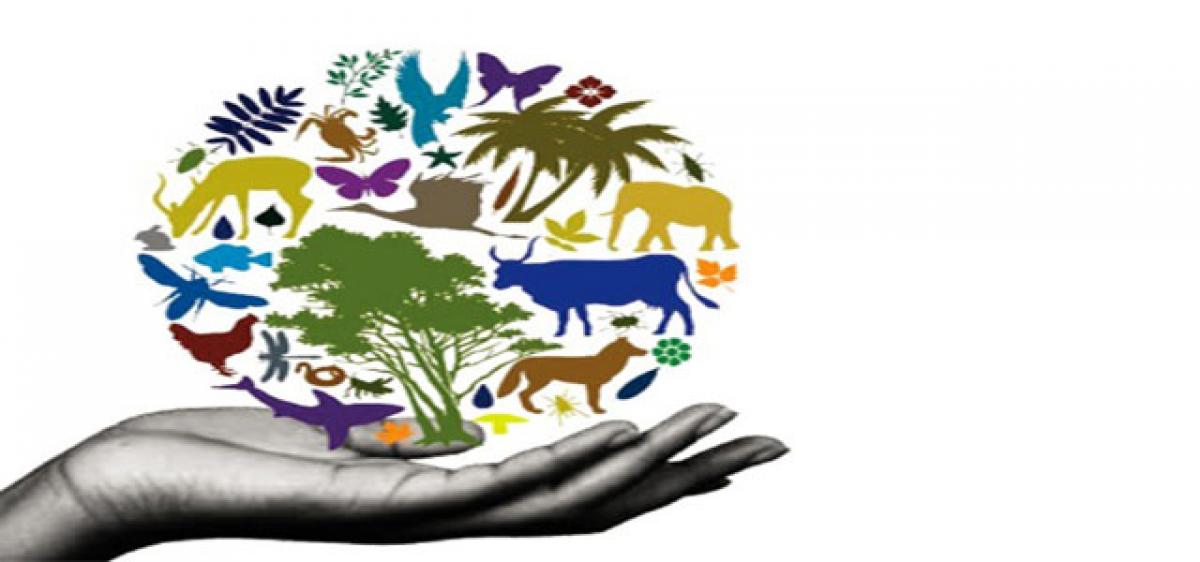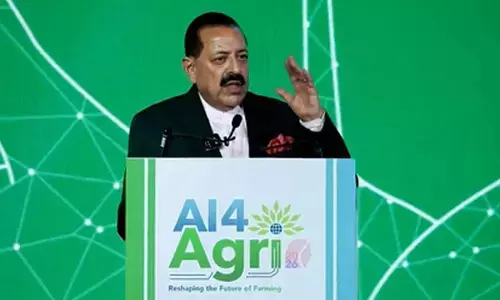Conserving environment and biodiversity vital

Conservation of environment and natural resources are very important for sustainable development and human existence.
Conservation of environment and natural resources are very important for sustainable development and human existence.
So governments around the world need to formulate the national policies for management of environment, forests and wildlife and effective implementation of that policies and plans and save the Earth for the next generations. It is government’s responsibility to prevent environmental pollution in all its forms and to tackle specific environmental problems.
I.Increase the forest and tree cover to 33% of the geographical area of the country (Afforestation and regeneration of degraded forests)
II.Conservation of the existing forests, wildlife and water resources and survey of various areas for identification of new species (Protection of Forests, Conservation of rivers, Biodiversity Conservation, Conservation of Wetlands, Wildlife Conservation, Conservation of resources in the eco-sensitive zone, Capacity building, training and research in classical and molecular taxonomy)
III.Control of Pollution (Air, Water, Noise and Industrial pollution) (Better ambient water quality, Management of hazardous substances and Better Environmental governance)
National Green Tribunal (NGT) in India:
The National Green Tribunal has been established on 18.10.2010 under the National Green Tribunal Act 2010 for effective and expeditious disposal of cases relating to environmental protection and conservation of forests and other natural resources including enforcement of any legal right relating to environment and giving relief and compensation for damages to persons and property and for matters connected therewith or incidental thereto.
It is a specialized body equipped with the necessary expertise to handle environmental disputes involving multi-disciplinary issues. The Tribunal shall not be bound by the procedure laid down under the Code of Civil Procedure, 1908, but shall be guided by principles of natural justice.
The Tribunal's dedicated jurisdiction in environmental matters shall provide speedy environmental justice and help reduce the burden of litigation in the higher courts.
The Tribunal is mandated to make and endeavour for disposal of applications or appeals finally within 6 months of filing of the same
New Delhi is the Principal Place of Sitting of the Tribunal and Bhopal, Pune, Kolkata and Chennai shall be the other 4 place of sitting of the Tribunal.
Common Welath Forestry Conference 2017 Dehradun, India
The Theme of the conference: “Forests for Prosperity and Posterity”
The commonwealth forestry conferences have been held since 1920, when the first (Empire) Forestry Conference was held in London. Since then, the conferences have been held regularly to discuss various aspects of management of forests and focus the action on the changing priorities of the forestry sector.
The “Commonwealth” refers to the Commonwealth of Nations, an association of 53 sovereign nations that works together to achieve international goals such as Peace, Democracy and Consensus-building, Law, Human Rights and Development, Environmentally Sustainable Economic Development with greater trust and mutual understanding.
The CFC-2017 conference aims to:
1.Serve as a key forum for all those concerned with the forestry sector to share their experience and expertise and pave the way for effective translation of forestry research into actions for its sustainability.
2.Provide a platform to encourage and strengthen forestry research and development for the benefit of the people and industry that depend on forests and related sectors for their economic and social well being.
3.Identify and address critical issues in the management of forests for the sustenance of rural, tribal and indigenous communities.
4.To provide a stage for all stakeholders to collaborate over the better management of forests and ensure food, water and energy security, thereby contributing to the global Sustainable Development Goals.








